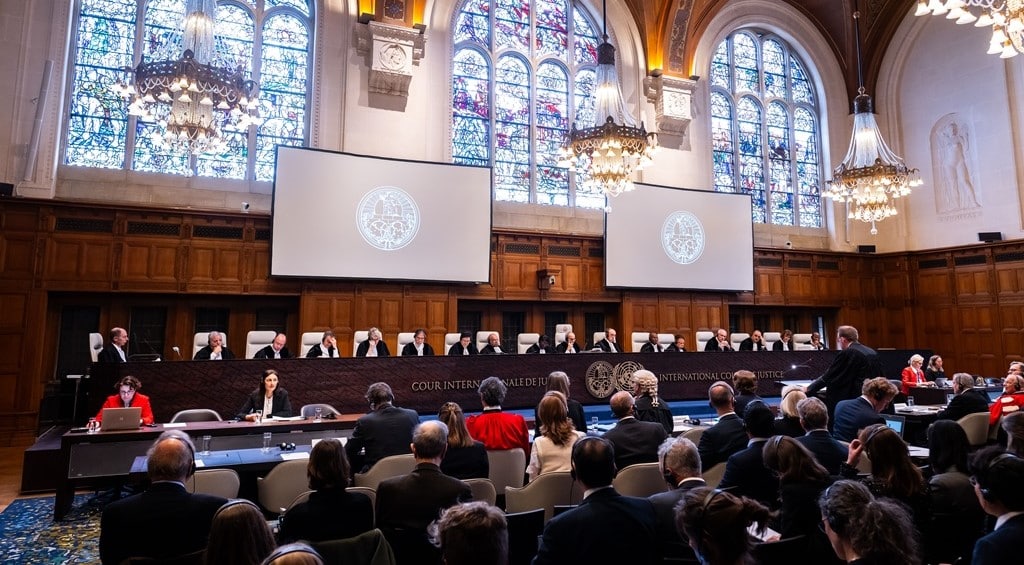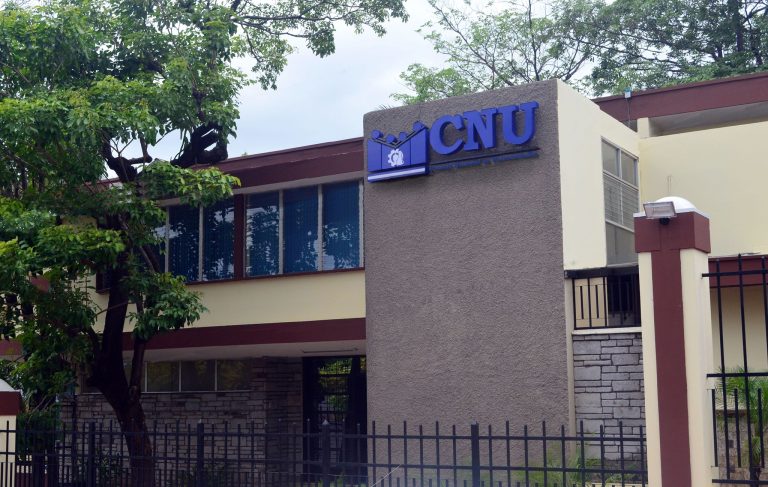3 de diciembre 2023

ICJ Rules Against Nicaragua's Request For Germany to Halt Arms Sales to Israel

PUBLICIDAD 1M
PUBLICIDAD 4D
PUBLICIDAD 5D
Regime transformed the management of Higher Education, transferred the administration of the 6% of the universities' constitutional budget to Treasury

Nicaragua’s National Assembly, controlled by the Ortega-Murillo regime, has enacted an unchallenged reform to Laws 89 and 582 – respectively, the law of Autonomy for Institutions of Higher Education, and the General Education Law. The changes realized are so drastic that specialists in the field call it “a death certificate for the country’s university autonomy.”
The reform was approved on November 30, with all 91 deputies voting in favor. It completely transforms the administrative model for higher education in Nicaragua, handing over to the National Council of Universities the legal authority to manage the universities in accordance with the interests of the Executive branch.
The confiscated “Central American University (UCA),” now rebaptized “Casimiro Sotelo National University”, been added to the list of national universities under the CNU. Further, the law transfers management of the 6% of Nicaragua’s national budget earmarked for higher education to the Ministry of Finance and Public Credit, which will now be in charge of its distribution.
“The National Council of Universities as a state entity will be in charge of regulating the Higher Education Institutions, assuring the formation of professionals in accordance with the country’s policies of sustainable human development. This implies reorganizing the structure of this entity, fortifying its functions, and giving it the legal capacity to manage the model of higher education,” states the official explanation of the reform.
CNU will be under orders from the Executive
In the structural framework of the reform, the regime not only reorganized the CNU structure, but also practically “transformed it into a Ministry of Higher Education,” noted Nicaraguan academic Ernesto Medina.
“There will now be a directive board named by the president of Nicaragua, about whom absolutely nothing has been said in terms of the qualities the CNU president and vice president will have. It appears that the secretary, currently the technical director, will be the person in charge of day-to-day operations,” Medina speculated.
He recalled that the reforms enacted at the beginning of the year gave the CNU “the role of comptroller of the universities.” Such a role isn’t consistent with the principle of university autonomy, and now, “instead of putting it in order, they made it worse.” Hence, he expressed, the current reform is like “the death certificate for university autonomy in Nicaragua.”
“With these changes, you can no longer continue talking about any kind of autonomy in Nicaragua’s higher education system. Autonomy is dead, and it’s been murdered by people who have probably never even walked down the sidewalk of a university… who are ignorant of the history of the universities and the struggles for autonomy,” the former academic leader commented.
In Medina’s judgement, these changes transform the universities into “organs to provide the government with a mass of people who don’t think, who are going to obey orders and will become the shock troops of the government party when needed.”
University Deans and departments eliminated
The reform to Law 89 also downgraded the figure of the deans and eliminated the role of the university departments and department councils. In their place, it creates directive bodies according to areas of knowledge, and some specific directors. It’s not clear what the measure refers to when it speaks of “areas of knowledge”.
“The directors, according to area of knowledge, are the maximum academic and executive authorities of each respective Area of Knowledge and represents them in their relations with other authorities and, as assigned, before private entities,” reads the first paragraph of Article 32 of the reform.
In addition, in Article 41 they add that the Specific Directive Bodies are the “academic authorities charged with managing and administering the curriculum for each career.”
Medina feels that these areas of knowledge are the same as the departments, but that they changed the name to simulate a complete transformation of higher education.
Distribution of the budget allowance now transferred to the Ministry of Finance
Another drastic change, possibly the one that will be most deeply felt in the universities, is the loss of economic autonomy. The regime has now transferred to the Ministry of Finance and Public Credit the responsibility for distributing the constitutionally mandated 6% of the national budget assigned to higher education.
“The Ministry of Finance and Public Credit will approve the policies and distribution of the funds assigned to the CNU, and to each university that forms part of the Consulting Council,” states Article 55 of the approved reform.
Medina believes the criteria imposed on the Ministry of Finance for the distribution of the 6% “are so general and so abstract” that it’s hard to see how these can contribute to improving the current situation of the universities. They’re directed towards complying with the government’s populist promise to make higher education free in 2024.
The Ortega regime has promised “free and quality” education for its 180,220 university students in 2024, something impossible to achieve, even if the entire 6% of the national budget went directly to these centers. Independent calculations based on data from 2021 indicate that each university student costs the government an average of $1,403 US dollars annually.
Based on that calculation, the regime would need US $252.83 million dollars to pay for all the students. However, the projected 6% budget for 2024 only adds up to around US $218.46 million dollars.
Changes aimed at financing the confiscated universities
Former deputy and political analyst Eliseo Nuñez estimates that with these changes in the distribution of the 6% chunk of the budget, the Ortega regime is trying to move resources to finance the “new” universities they’ve created out of the higher education centers they confiscated between 2021 and 2023.
“This is the end of university autonomy,” Nuñez stressed. “The 6% will be maintained, but they [the executive power] will take charge of the internal distribution. This is basically to finance the “new” national universities,” he added.
Nuñez sees these changes in the university budget as similar to the cutbacks the regime made to the Judicial Power, and to their new method of calculating the severance pay allotted to the public servants who resign. The government’s own propaganda justifies these as “savings measures” on their social network sites.
The reform implies a reduction in the budget for the country’s chief universities. The “budget amount is the same,” noted the former deputy, but it will now be distributed by the Finance Ministry among a greater number of university centers.
This article was published in Spanish in Confidencial and translated by Havana Times. To get the most relevant news from our English coverage delivered straight to your inbox, subscribe to The Dispatch.
PUBLICIDAD 3M
Confidencial es un diario digital nicaragüense, de formato multimedia, fundado por Carlos F. Chamorro en junio de 1996. Inició como un semanario impreso y hoy es un medio de referencia regional con información, análisis, entrevistas, perfiles, reportajes e investigaciones sobre Nicaragua, informando desde el exilio por la persecución política de la dictadura de Daniel Ortega y Rosario Murillo.
PUBLICIDAD 3D